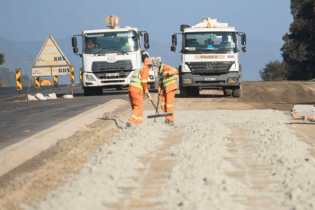The Southern African Plastic Pipe Manufacturer’s Association (SAPPMA) has published and released a third revision of its Technical Manual, aimed at assisting engineers who are involved in the plastic pipe industry, to make informed decisions.
“The purpose of this manual is to provide basic, relevant information and the guidance needed to ensure that plastic pipes for water supply and wastewater disposal applications are correctly specified and selected,” explains SAPPMA CEO Jan Venter. Although this manual does not attempt to replace published text books and codes on the subject, Venter says that it is a basic guide to the use, selection and specification of these products. It covers the differences between the various types of plastic pipes and the basic procedures for determining product size, strength and material properties for a range of applications. The latest revision also includes sections on hot and cold water plumbing pipes; HDPE fabricated fittings as well as the jointing of HDPE. For a limited period copies of the publication have been made available to design and civil engineers free of charge via SAICEand as a service to the industry.
“Together with the country’s networks of roads, railways and electrical grids, pipelines form key part of a South Africa’s infrastructure. By definition, these investments in infrastructure should be long-term. Modern plastic pipe materials are easily suitable for hundred year lifetimes and we want to ensure that the engineers involved in specification processes are equipped with the most recent and independent design information when they are making their decisions,” Venter says.
Thanks to on-going product development, innovation and research, plastic pipes have become the material of choice for most applications in South Africa and the rest of the world. Not only do they help to preserve scarce resources thanks to an embedded energy that is notably lower than most other materials, but plastic pipes also play a significant role in minimising pumping energy due to excellent hydraulic properties that remain virtually unchanged throughout its life. Handling of plastics is significantly easier and cheaper than other materials and leak-free joints are economically and easily achieved. “However, poor quality plastic pipe is not necessarily obvious from a visual point of view, which makes it even more important for design engineers or specifiers to apply all available precautions in the selection of manufacturers, suppliers and installers,” Venter says, adding that pipe manufacturers and installers who are members of SAPPMA and IFPA are subjected to additional quality control measures over and above the national standards.





